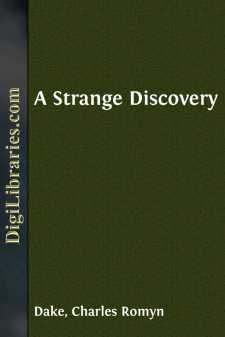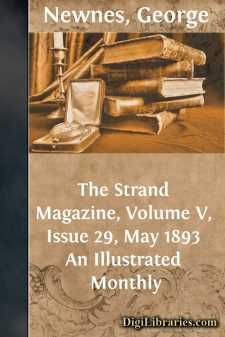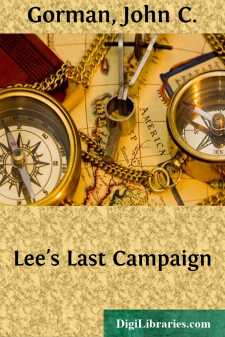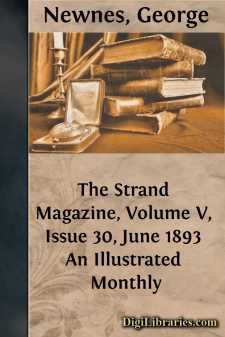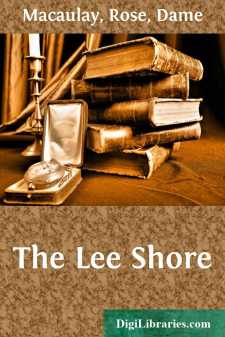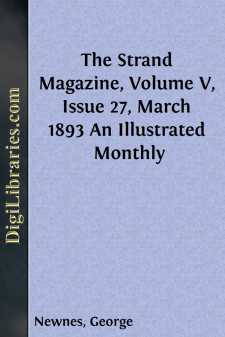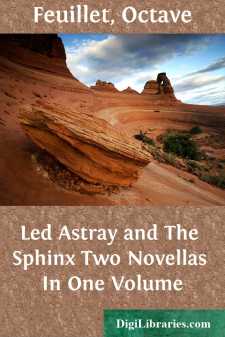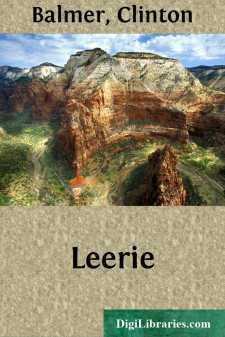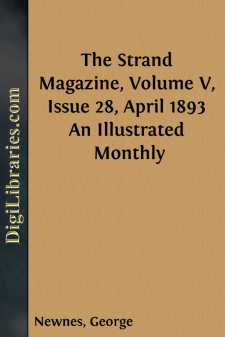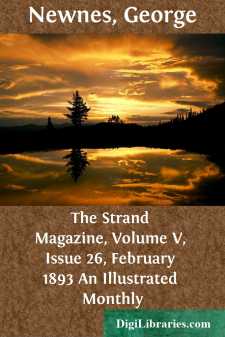Fiction
- Action & Adventure 180
- Biographical 15
- Christian 59
- Classics 6965
- Coming of Age 5
- Contemporary Women 3
- Erotica 8
- Espionage/Intrigue 12
- Fairy Tales, Folklore & Mythology 236
- Family Life 169
- Fantasy 117
- Gay 1
- General 596
- Ghost 32
- Historical 808
- Horror 43
- Humorous 160
- Jewish 25
- Legal 4
- Medical 22
- Mystery & Detective 315
- Political 49
- Psychological 41
- Religious 64
- Romance 159
- Sagas 11
- Science Fiction 730
- Sea Stories 113
- Short Stories (single author) 537
- Sports 10
- Suspense 1
- Technological 8
- Thrillers 2
- Urban Life 31
- Visionary & Metaphysical 1
- War & Military 173
- Westerns 199
Fiction Books
Sort by:
The FIRST Chapter It was once my good fortune to assist in a discovery of some importance to lovers of literature, and to searchers after the new and wonderful. As nearly a quarter of a century has since elapsed, and as two others shared in the discovery, it may seem to the reader strange that the general public has been kept in ignorance of an event apparently so full of interest. Yet this silence is...
more...
by:
George Newnes
Barbara Thorne sat leaning her head on her hand, looking at a photograph that lay on the table beneath her eyes. She had not intended to look for that when she pulled out a dusty drawer full of old letters, papers, and account-books to arrange and set in order. But when in the course of her rummaging and tidying she found that picture in her hand, she paused in her task. The neglected drawer stood...
more...
by:
John C. Gorman
CHAPTER I. The Condition of the Army of Northern Virginia in its Last Days—The Lines in Front of Petersburg—The Battles Around the City—The Final Struggle—Terrible Fighting—The Assaults on Forts Mahone and Gregg—Thrilling Scenes—The Main Bodies of Both Armies Stand and Look Anxiously On—The Confederate Army Severed—The Evacuation of Richmond and Petersburg—The Greetings of...
more...
by:
George Newnes
I once knew two industrious mechanics named Pierre and Baptiste. They dwelt in a ramshackle tenement at Sault aux Belœuil, where each had half-a-dozen children to support, besides their wives; who, it is grievous to relate, were drones. They were only nominally acquainted with that godly art commonly associated with charwomen. Pierre and Baptiste were hard workers. They worked far into the night and,...
more...
by:
Rose Macaulay
A HEREDITARY BEQUEST During the first week of Peter Margerison's first term at school, Urquhart suddenly stepped, a radiant figure on the heroic scale, out of the kaleidoscopic maze of bemusing lights and colours that was Peter's vision of his new life. Peter, seeing Urquhart in authority on the football field, asked, "Who is it?" and was told, "Urquhart, of course," with the...
more...
by:
George Newnes
From the French. I. King Phillip II. was playing at chess in the Escurial Palace. His opponent was Ruy Lopez, a humble priest, but a chess player of great skill. Being the King's particular favourite, the great player was permitted to kneel upon a brocaded cushion, whilst the courtiers grouped about the King were forced to remain standing in constrained and painful attitudes. It was a magnificent...
more...
by:
Octave Feuillet
CHAPTER I. A GRAPHIC DESCRIPTION. George L—— to Paul B., Paris Rozel, 15th September. It's nine o'clock in the evening, my dear friend, and you have just arrived from Germany. They hand you my letter, the post-mark of which informs you at once that I am absent from Paris. You indulge in a gesture of annoyance, and call me a vagabond. Nevertheless, you settle down in your best arm-chair,...
more...
by:
Clinton Balmer
Chapter I THE MAN WHO FEARED SLEEP Peter Brooks felt himself for a man given up. He had felt his physical unfitness for some time in the silent, condemning judgment masked under the too sympathetic gaze of his fellow-men; he had felt it in the over-solicitous inquiries after his health made by the staff; and there was his chief, who had fallen into the comfortable week-end habit of telling him he...
more...
by:
George Newnes
The Prince of Wales at Sandringham. [The Prince of Wales is, of course, precluded by his position from granting interviews like private persons, but His Royal Highness has been so good as to give us special permission to insert the following extremely interesting article, which we are happy to be able to present to our readers in place of the Illustrated Interview for the present month. The next of the...
more...
by:
George Newnes
By Leonard Outram. "I will have you! I will have you! I will! I will! I will!!" I can see his dark face now as he spoke those words. I remember noticing how pale his lips were as he hissed out through his clenched teeth: "Though I had to fight with a hundred men for you—though I had to do murder for your sake, you should be mine. In spite of your love for him, in spite of your hate for...
more...


